- Home
- Piers Anthony
Mer-Cycle Page 5
Mer-Cycle Read online
Page 5
“Yes.”
“So I had to pretend. I had the whole beach to myself with only the gulls for company. They stood on the sand facing the wind. I saw a horseshoe crab, and I tried to pick it up—it was the first horseshoe crab I had ever seen.”
“They’re not crabs,” Gaspar said without looking up from his work. That surprised Don; he had thought the man had tuned them out. “They’re related to the scorpions and are the only living members of a large group of extinct animals. They’ve survived unchanged for two hundred and fifty million years.”
“All the more wonderful to behold,” Melanie said. “The beach has a powerful internal significance for me that I’ve never quite been able to understand. This one I experienced was wonderfully dramatic. They all are. I never just have seen a beach. It’s a total experience. The sand under my feet, warmth, wind, smells, sound, and motion. The beach just is. And I am there walking along looking for seashells and somehow I feel that I belong there. For the moment. It feels like something I can always come back to. Something almost unchanged in a sea of change.”
Like the horseshoe crabs, Don thought. Unchanged since the dinosaurs. Perhaps man, when he gazed upon the beach, remembered his ancestor who fought the extraordinary battle to free himself from the grip of the sea, and this was that battleground.
“My life so easily slips into things and experiences with labels,” Melanie said. “But the beach somehow for me always slips the compass of a label and asserts the primacy of existence.” She paused. “If that makes sense to you.”
All he could say was “Yes.” It wasn’t just her perspective on the beach, it was the fact that she had presented it to him as a fellow human being, as if he deserved to have this insight. What a wonderful experience!
Gaspar completed his repair, and they resumed riding. The difference between a slight decline and a slight incline was enormous, when they were pedaling it. But they could not go down forever. Don had been pleased at how well he was keeping up, but now he wondered whether there was something wrong with his own bicycle. He pushed and pushed on the pedals, but the machine moved slowly, and he was out of breath doing a bare five or six miles per hour. Melanie was struggling similarly.
Gaspar abruptly stopped again. This time his rear wheel was loose, so that it rubbed against the frame with every revolution. Thank God! Don thought guiltily, offering no argument about repairs. He dropped to the ground and let life soak back into his deadened limbs.
Gaspar was tough. If he was tired, it didn’t show. Don had never been partial to muscle, but would have settled for several extra pounds of it for this trip.
Melanie dropped beside him, almost touching. Even through his fatigue, he felt the thrill. “Talk to me, Don,” she murmured.
This time he was able to perform. “You know, Gaspar and I are both only-survivors in our families. We think that’s because our employer selected for singleness. Maybe they don’t want people wondering where we are. In case—you know. Uh, you said you’re single, but otherwise—is it the same with you?” He had even asked her a direct personal question!
“Almost,” she said. “My father died ten years ago. He married late. My mother was thirty five when I was born. I haven’t seen her for a couple of years. So it’s the same, I guess. I’m uncommitted. But I’d be uncommitted even if I had a massive crowd of relatives.”
“You keep saying that,” Don protested. “But you’re such a lovely young woman—”
She looked at him. “I guess I’d better take the plunge and show you. Get it over with at the outset. That’s maybe better than having it happen by chance, as it surely will otherwise.”
“Show me what?”
“Look at me, Don.” She sat up.
He sat up too, uncertain what she had in mind. He tried to keep his eyes from the firm inner thighs that her crossed legs showed under the skirt, but that meant he was focusing on her evocative bosom. He finally had to fix on her lovely face.
Melanie put her hands to her head and slid her fingers in under her perfect hair. She tugged—and her hair came off in a mass. It was a wig—and beneath it she was completely bald.
Don simply stared.
“I’m hairless,” she said. “All over my body. My eyebrows are glued on, and my eyelashes are fake. It’s a genetic defect, they think. No hair follicles.” She lifted one arm and pulled her blouse to the side to show her armpit. “I don’t shave there. No need to. No hair grows.” She glanced down. “Anywhere.”
Don was stunned. She had abruptly converted from a beautiful young woman to a bald mannequin. She now looked like an alien creature from a science fiction movie. Her green eyes shone out from the face on the billiard ball head, as if this were a doll in the process of manufacture.
“So now you know,” the mouth in the face said.
Don tried to say something positive, but could not speak at all. Her beauty had been destroyed, and she had been made ludicrous. It might as well have been a robot talking to him.
Gaspar righted his bicycle. “Ready to go,” he said. “We shouldn’t use up the batteries unnecessarily.” Then, after a pause: “Oh.”
“Oh,” Melanie echoed tonelessly.
“I wasn’t paying much attention when it counted, it seems,” Gaspar said. “Disease? Radiation therapy?”
“Genetic, from birth,” she said.
“Why show us?”
“Because Don was starting to like me.”
He nodded. “Hair is superficial. We know it. Now all we have to do is believe it.”
Melanie put her wig back on, and pressed it carefully into place. It was evident that it had some kind of adhesive, and would not come loose unless subject to fair stress. She resumed her former appearance. But now, to Don’s eyes, she looked like a bald doll with a hairpiece. She had set out to disabuse him of his notions of her attractiveness, and had succeeded. Evidently she didn’t want to be liked ignorantly.
They resumed travel without further comment. The coordinates were 24°20’–82°30’. Forty minutes west of their rendezvous, ten south. Depth was one hundred fathoms. They must have been traveling well, indeed, downhill, before starting the laborious climb. Don was amazed to realize that they were now beyond their target, and he had never been aware of their passing it. They had time, plenty of time, thank the god of the sea.
They had climbed six hundred feet in the past two miles, and it didn’t look steep, but it was grueling on a bicycle. Now he was glad for the continued struggle, because it gave him something other to think about than Melanie’s hair. She had figured him exactly: he was getting to like her, because she was pretty and she talked to him. And now his building illusion had been shattered. He should have known that there would be something like this.
Twenty miles and seventy fathoms east and up, with a break for another bicycle malfunction—this time Don’s, whose seat had come loose and twisted sideways—the way abruptly became steep. Gaspar, in the lead, dismounted and walked his bike up the slope. Don and Melanie were glad to do the same; it was a relief to change the motion.
Suddenly Don saw a rough wall, almost overhanging. Jagged white outcroppings and brown recesses made this a formidable barrier, and it extended almost up to the surface of the sea.
“This is it,” Gaspar said with satisfaction as they drew beside him.
“But how can we pass?” Don asked. “What is it, anyway?”
Gaspar smiled. “Coral reef. Isn’t she a beauty!”
Don, not wanting to admit that he had never seen a coral reef before, and had had a mental picture of a rather pretty plastered wall with brightly colored fish hovering near, merely nodded. It looked ugly to him, because he couldn’t see how they were going to get across it. There might be a hundred feet of climbing to do, scaling that treacherous cliff—and how were they going to haul up the bicycles?
He glanced at Melanie, who had not spoken since her revelation. Could she be likened to a coral reef? His mental image suddenly disabused by the reality? Unfort
unately, it was the reality that counted.
They did not have to scale the reef. Gaspar merely showed the way east, coasting down the bumpy slope to deeper water. This was why they had come this way: to go around the reef instead of across it. Don was now increasingly thankful for Gaspar’s knowledge of the geography of the sea. When they struck reasonably level sand they picked up speed. They went another ten miles before he called a halt.
“We’re within a dozen miles,” Gaspar said, breaking out the rations. “I guess we’d better get inside the reefs, next chance. Rendezvous is only a couple miles out of Key West.”
“Get inside the reefs?” Don asked, dismayed. “I thought we already went around them.”
“No, only part way. But this is a better place to cross them, I think.”
“Why is the rendezvous so close to civilization?” Don mused. “Can this next person know even less about the ocean than I do?”
Melanie remained silent, and Gaspar discreetly avoided the implication. “The reefs are rough—literally. The edges can cut like knives, and the wounds are slow to heal. It’s no place to learn to swim, or ride. So we’ll have to guide him through with kid gloves. He probably does know less than you—now.”
A left-footed compliment! “So how do we get through?”
“Oh, the reefs are discontinuous. We’ll use a channel and get into shallow water. Have to watch out for boats, though; we’ll be plainly visible in twenty foot depth.” He considered briefly. “In fact, as I recall, there’s a lot of two fathom water in the area. Twelve feet from wave to shell in mean low water, which means barely six feet over our heads. That’s too much visibility.”
Don agreed. He would now feel naked with that thin a covering of water. He was tired, and wanted neither to admit it nor to hold up progress, but here was a valid pretext to wait. On the other hand, he was increasingly curious about this close-to-land member of the expedition. If the man were not knowledgeable about the marine world, why was he needed at all?
But Melanie wasn’t knowledgeable either. What was her purpose here? Unless this really was a testing situation, a maze for average white rats. How would those rats find their way through? How well would they cooperate with each other? He remembered reading about a test in which a rat could get a pellet of food by striking a button. Then the button was placed on the opposite side of the chamber from the pellet dispenser. Then two rats were put in the same chamber. When one punched the button, the other got the pellet. That was testing something other than wit or mechanical dexterity. Could this be that sort of test?
They cut into the reef. This time Don observed the myriad creatures of this specific locale, and the reef began to align better with his former mental image. The elements were there, just not quite the way he had pictured them. The fish in the open waters had generally stayed clear of the odd bicycle party, probably frightened by the lights and machinery, so that he had ignored them with impunity. But this stony wall was well populated. Yellow-eyed snakes peeped from crevices, teeth showing beneath their nostrils, watching, waiting.
Beside him, Melanie seemed no more at ease. She tried to keep as far from the reef as possible without separating from the human party.
Gaspar saw their glances. “Moray eels,” he said. “No danger to us, phased—but if we were diving, I’d never put hand or foot near any of these holes. Most sea creatures are basically shy, or even friendly, and some of the morays are too. But they can be vicious. I’ve seen one tackle an octopus. The devilfish tried to hide, but the moray got hold of a single tentacle and whirled around until that tentacle twisted right off. Then it ate that one and got hold of another.”
“Why didn’t you do something?” Don asked. He had no love of octopi, which were another group of childhood nightmares, but couldn’t bear the thought of such cruelty.
“I did,” Gaspar admitted. “I don’t like to interfere with nature’s ways, but I’m not partial to morays. Actually the thing took off when I came near. Good decision; I would have speared it.”
“The-the octopus. Did you have to—kill it? With two arms off—”
“Course not. Tentacles grow back. They’re not like us, that way.”
“I guess not,” Don agreed, looking again at the morays. They might not be quite in his phase, but he would keep clear of them regardless. Certainly there were prettier sights. He spied zebra-striped fish, yellow and black (juvenile black angelfish, Gaspar said), red fish with blue fins and yellow tails (squirrelfish), purple ones with white speckles (jewelfish), greenish ones with length-wise yellow striping—or maybe vice versa (blue-striped grunt), and one with a dark head, green tail, with two heavy black stripes between (bluehead wrasse). Plus many others he didn’t call to Gaspar’s attention, because he tended to resent the man’s seemingly encyclopedic nomenclature. Melanie seemed similarly fascinated, now that they had gotten among the pretty fish instead of the ugly eels.
“Good thing you didn’t ask me any of the difficult ones,” Gaspar said. “There’s stuff in these reefs I never heard of, and probably fish no man has seen. New species are discovered every year. I think there are some real monsters hidden down inside.”
But the surface of the coral reef was impressive enough. They passed a section that looked like folded ribbon (stinging coral-stay clear), and marveled at its convolutions.
Then the reef rounded away, and they pedaled through. Melanie almost bumped into a large ugly green fish and shied away, still not completely used to the phaseout. But that reminded Don of something.
“We ride on the bottom because that’s inanimate,” he said. “The living things are phased out. But aren’t the coral reefs made by living creatures? How come they are solid to us, then?”
“They’re in the phase world,” Gaspar said. “They’re part of the terrain. They may not be the same reefs we see, but they’re just like them. So we have to take them seriously. Otherwise we could have ridden straight through them, and saved ourselves a lot of trouble.”
Of course that was true. Don was chagrined for not seeing the obvious.
They climbed into the shallows, passing mounds and ledges and even caves in the living coral. For here it was not rocklike so much as plantlike, with myriad flower-shapes blooming.
Gaspar halted as the ground became too uneven to ride over. “Isn’t that a grand sight?” he asked rhetorically. “They’re related to the jellyfish, you know. And to the sea anemones.”
“What are?” Don asked, perplexed.
“The coral polyps. Their stony skeletons accumulate to form the reef—in time. Temperature has to be around seventy degrees Fahrenheit or better, and they have to have something to build on near the surface, but within these limits they do well enough. They strain plankton from the water with their little tentacles—”
“Oh? I didn’t see that,” Melanie said, finally speaking. Apparently her revelation of her condition had set her back as much as it had Don, and she had withdrawn for a time. Now she was returning, and maybe it was just as well.
“They do it at night, mostly,” Gaspar explained. “We’re seeing only a fraction of the fish that live on the reef; night is the time for foraging.”
“You certainly seem to know a lot about sea life,” Melanie said. “Are you sure you’re a geologist?”
Gaspar laughed. “You have to know something about the flora and fauna, if you want to stay out of trouble. Sharks, electric eels, poisonous sponges, stinging jellyfish—this world is beautiful, but it’s dangerous too, unless you understand it.”
“I believe it,” she said.
“And there are practical connections to my specialty,” Gaspar continued, gazing on the coral with a kind of bliss. “I could mistake coral for a limestone rock formation, if I didn’t study both. Actually it is limestone—but you know what I mean. It tells me about historical geology, too. Because of the necessary conditions for the growth of coral. If I spy a coral reef in cold water, and it’s five hundred feet below the surface—”
“Say!” Don exclaimed, catching on. “Then you know that water was once seventy degrees warm, and that the land was higher.”
“Or the sea lower. Yes. There are hundreds of things like that. Fossils in sediments, for example. They account for an entire time scale extending through many hundreds of millions of years. Check the fossils and you know when that material was laid down and what the conditions were.”
“Like pottery shards!” Don said. “Each one typical of a particular culture. Only your shards are bones and shells.”
“You’re right,” Gaspar agreed, smiling. “Now I understand what you do. You’re a paleontologist of the recent past.”
“Recent past! I wouldn’t call several thousand years exactly—”
“Geologically, anything less than a million years—”
“Maybe we’d better make our rendezvous,” Melanie suggested.
They moved on, drawing nearer to the surface. The water inside the reef was barren in comparison: pellucid, with a flat sandy bottom. Don did spy a number of swift-moving little silvery fish scooting across the floor, and once something gray and flat flounced away as his front tire interacted with its bones.
Then they hit a field of tall grass—except that it wasn’t grass. Some was green and flat, some was green and round. The stalks offered little effective resistance to the bicycles, but Don still had the impression of forging through by sheer muscle. It was amazing to what extent sight, not knowledge, governed his reactions.
He glanced covertly at Melanie. She looked perfect: still slender and feminine. Had she not shown him her bald head …

 Serial
Serial Question Quest
Question Quest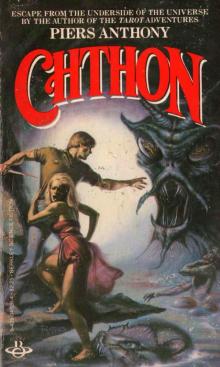 Chthon
Chthon Dragon on a Pedestal
Dragon on a Pedestal E. S. P. Worm
E. S. P. Worm Hope of Earth
Hope of Earth The Series Boxed Set
The Series Boxed Set Blue Adept
Blue Adept The Sopaths
The Sopaths Beetle Juice
Beetle Juice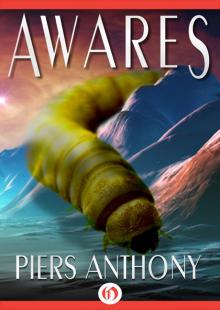 Awares
Awares Golem in the Gears
Golem in the Gears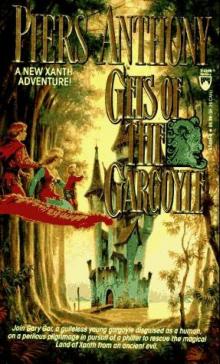 Geis of the Gargoyle
Geis of the Gargoyle Bamboo Bloodbath and Ninja's Revenge
Bamboo Bloodbath and Ninja's Revenge Heaven Cent
Heaven Cent Neq the Sword
Neq the Sword Pandora Park
Pandora Park Juxtaposition
Juxtaposition Bearing an Hourglass
Bearing an Hourglass Dragon Assassin
Dragon Assassin Board Stiff
Board Stiff Virtual Mode
Virtual Mode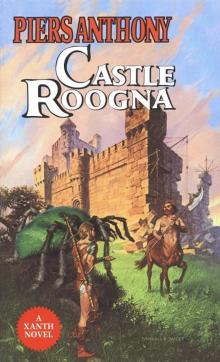 Castle Roogna
Castle Roogna Aliena Too
Aliena Too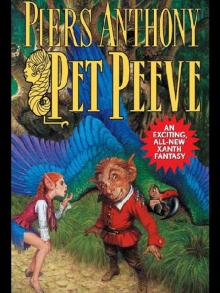 Pet Peeve
Pet Peeve The Metal Maiden Collection
The Metal Maiden Collection Volk
Volk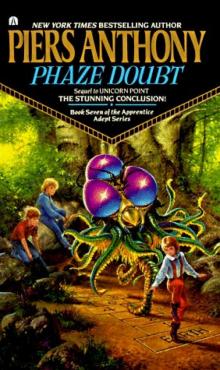 Phaze Doubt
Phaze Doubt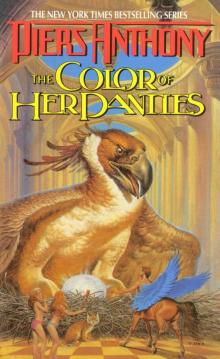 The Color of Her Panties
The Color of Her Panties Amazon Slaughter and Curse of the Ninja Piers Anthony
Amazon Slaughter and Curse of the Ninja Piers Anthony The Worm Returns
The Worm Returns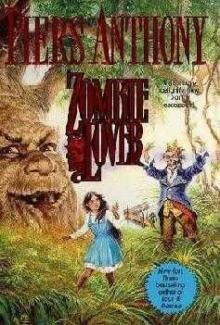 Zombie Lover
Zombie Lover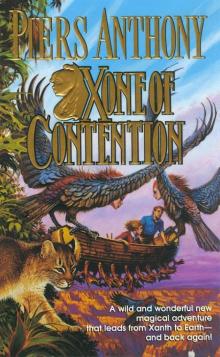 Xone of Contention
Xone of Contention The Gutbucket Quest
The Gutbucket Quest Split Infinity
Split Infinity Dream a Little Dream: A Tale of Myth and Moonshine
Dream a Little Dream: A Tale of Myth and Moonshine Balook
Balook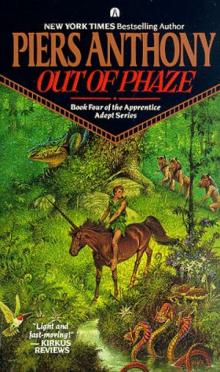 Out of Phaze
Out of Phaze The Secret of Spring
The Secret of Spring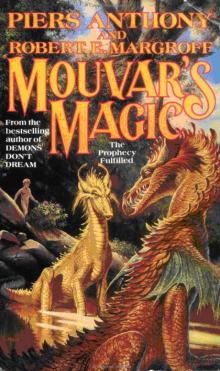 Mouvar's Magic
Mouvar's Magic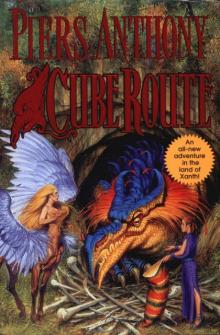 Cube Route
Cube Route Mercenary
Mercenary Total Recall
Total Recall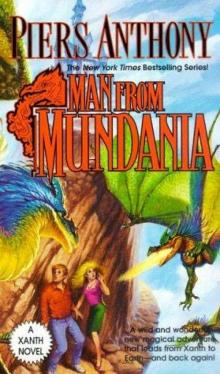 Man From Mundania
Man From Mundania The Magic Fart
The Magic Fart Letters to Jenny
Letters to Jenny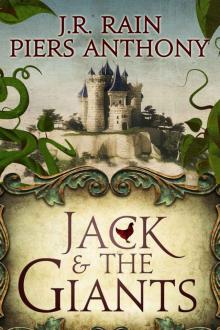 Jack and the Giants
Jack and the Giants Executive
Executive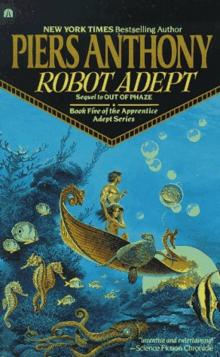 Robot Adept
Robot Adept On A Pale Horse
On A Pale Horse Vale of the Vole
Vale of the Vole Crewel Lye
Crewel Lye For Love of Evil
For Love of Evil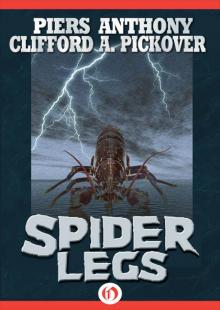 Spider Legs
Spider Legs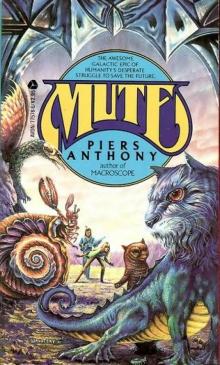 Mute
Mute Being a Green Mother
Being a Green Mother Hair Suite
Hair Suite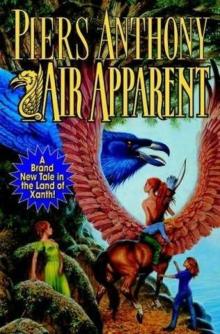 Air Apparent
Air Apparent Politician
Politician Aliena
Aliena Phthor
Phthor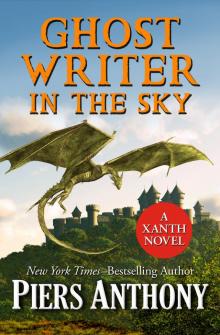 Ghost Writer in the Sky
Ghost Writer in the Sky Pornucopia
Pornucopia Eroma
Eroma Shepherd
Shepherd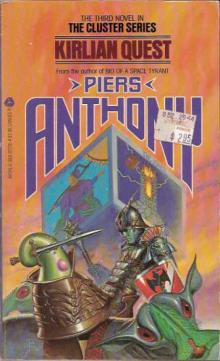 Kirlian Quest
Kirlian Quest Swell Foop
Swell Foop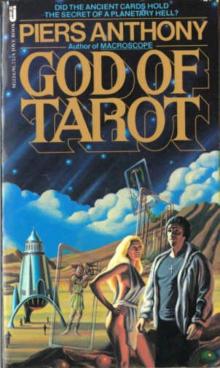 God of Tarot
God of Tarot If I Pay Thee Not in Gold
If I Pay Thee Not in Gold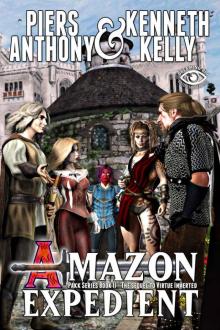 Amazon Expedient
Amazon Expedient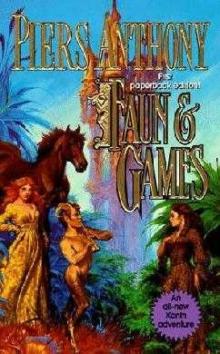 Faun & Games
Faun & Games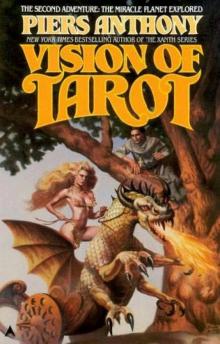 Vision of Tarot
Vision of Tarot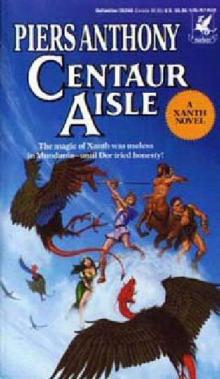 Centaur Aisle
Centaur Aisle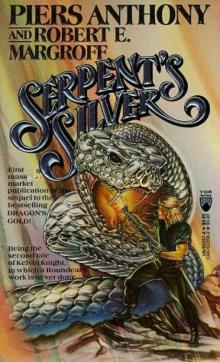 Serpent's Silver
Serpent's Silver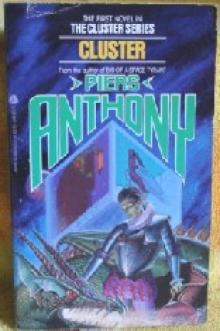 Cluster
Cluster With a Tangled Skein
With a Tangled Skein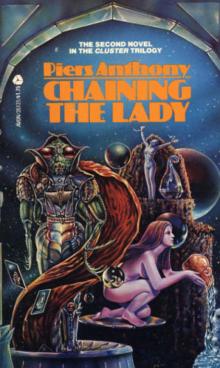 Chaining the Lady
Chaining the Lady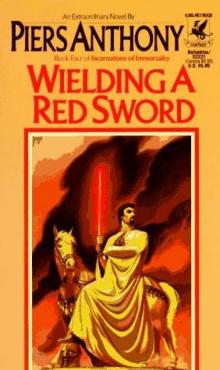 Wielding a Red Sword
Wielding a Red Sword Key to Chroma
Key to Chroma WereWoman
WereWoman Isis Orb
Isis Orb Hair Peace
Hair Peace Two to the Fifth
Two to the Fifth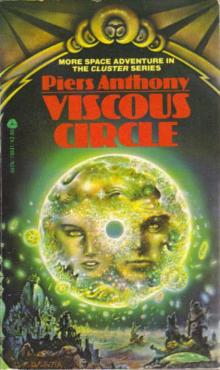 Viscous Circle
Viscous Circle Skeleton Key
Skeleton Key Cautionary Tales
Cautionary Tales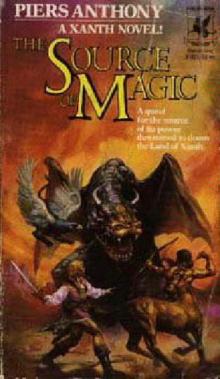 The Source of Magic
The Source of Magic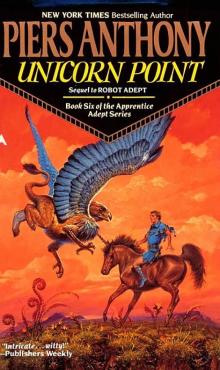 Unicorn Point
Unicorn Point Writer's Retweet
Writer's Retweet Demons Don't Dream
Demons Don't Dream Ogre, Ogre
Ogre, Ogre The Iron Maiden
The Iron Maiden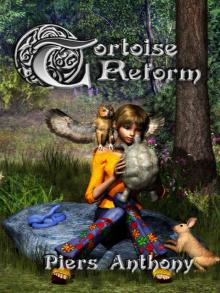 Tortoise Reform
Tortoise Reform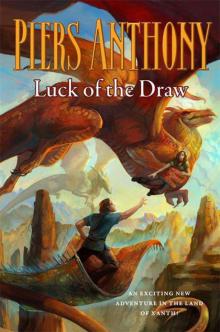 Luck of the Draw
Luck of the Draw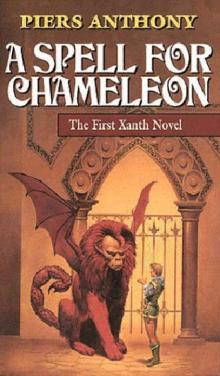 A Spell for Chameleon
A Spell for Chameleon Yon Ill Wind
Yon Ill Wind Currant Events
Currant Events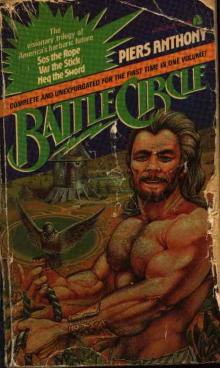 Var the Stick
Var the Stick And Eternity
And Eternity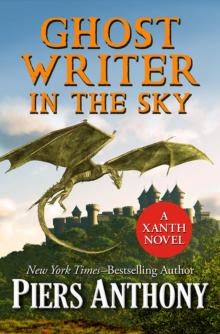 Kiai! & Mistress of Death
Kiai! & Mistress of Death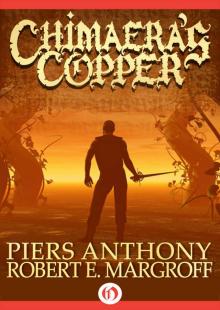 Chimaera's Copper
Chimaera's Copper Refugee
Refugee Isle of View
Isle of View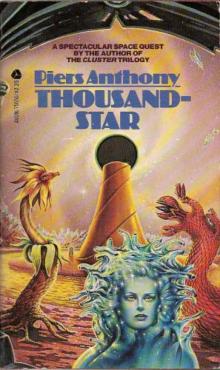 Thousandstar
Thousandstar Mer-Cycle
Mer-Cycle Service Goat
Service Goat Five Portraits
Five Portraits Night Mare
Night Mare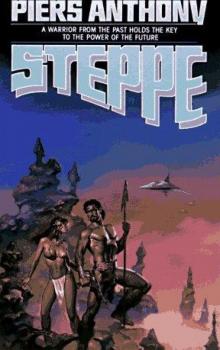 Steppe
Steppe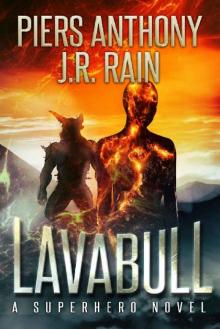 Lavabull
Lavabull Well-Tempered Clavicle
Well-Tempered Clavicle Aladdin Relighted
Aladdin Relighted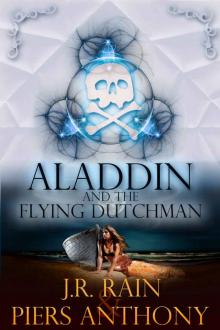 Aladdin and the Flying Dutchman
Aladdin and the Flying Dutchman Knot Gneiss
Knot Gneiss Roc and a Hard Place
Roc and a Hard Place Aladdin Sins Bad
Aladdin Sins Bad Flytrap
Flytrap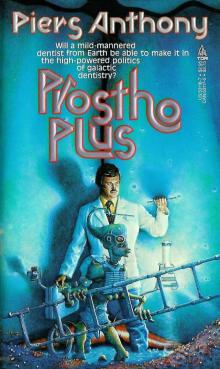 Prostho Plus
Prostho Plus Esrever Doom
Esrever Doom Hair Power
Hair Power The Journey
The Journey Virtue Inverted
Virtue Inverted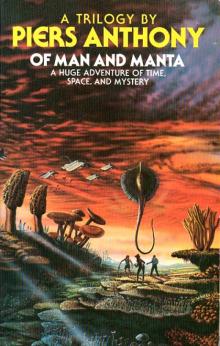 Of Man and Manta Omnibus
Of Man and Manta Omnibus Trail Mix: Amoeba
Trail Mix: Amoeba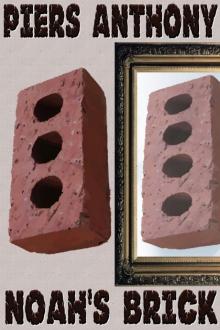 Noah's Brick
Noah's Brick Odd Exam
Odd Exam Magenta Salvation
Magenta Salvation Jest Right
Jest Right Fire Sail
Fire Sail Chthon a-1
Chthon a-1 Amoeba
Amoeba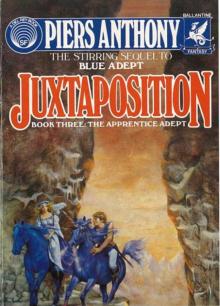 Juxtaposition aa-3
Juxtaposition aa-3 Pira
Pira THE CATERPILLARS QUESTION
THE CATERPILLARS QUESTION What Fears Become: An Anthology from The Horror Zine
What Fears Become: An Anthology from The Horror Zine Bio of a Space Tyrant Vol. 3. Politician
Bio of a Space Tyrant Vol. 3. Politician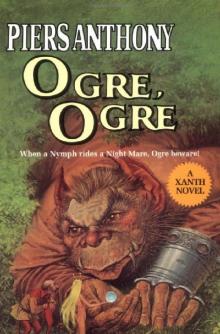 Ogre Ogre x-5
Ogre Ogre x-5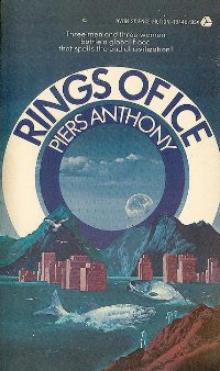 Rings of Ice
Rings of Ice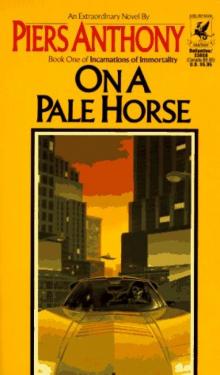 On a Pale Horse ioi-1
On a Pale Horse ioi-1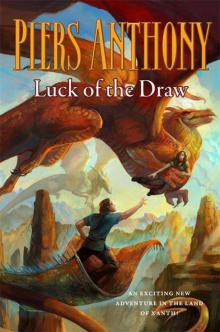 Luck of the Draw (Xanth)
Luck of the Draw (Xanth)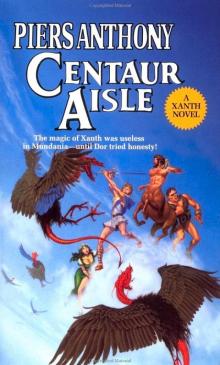 Centaur Aisle x-4
Centaur Aisle x-4 Thousandstar (#4 of the Cluster series)
Thousandstar (#4 of the Cluster series) Gutbucket Quest
Gutbucket Quest Isle of Woman (Geodyssey)
Isle of Woman (Geodyssey)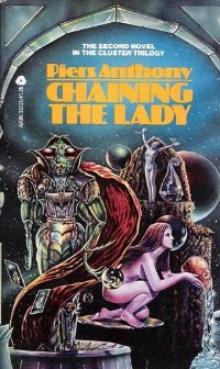 Chaining the Lady c-2
Chaining the Lady c-2 To Be a Woman
To Be a Woman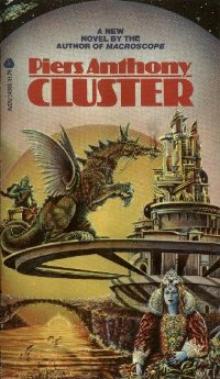 Cluster c-1
Cluster c-1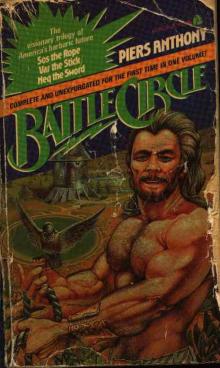 Battle Circle 2 - Var the Stick
Battle Circle 2 - Var the Stick Mercenary (Bio of a Space Tyrant Book 2)
Mercenary (Bio of a Space Tyrant Book 2)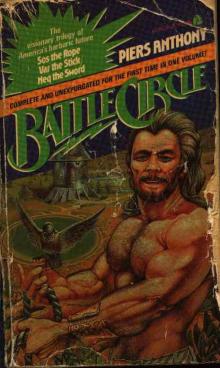 Battle Circle 1 - Sos the Rope
Battle Circle 1 - Sos the Rope Xanth 30 - Stork Naked
Xanth 30 - Stork Naked Secret of Spring
Secret of Spring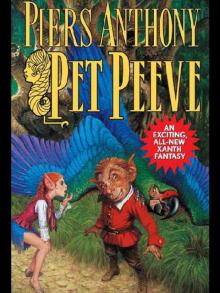 Xanth 29 - Pet Peeve
Xanth 29 - Pet Peeve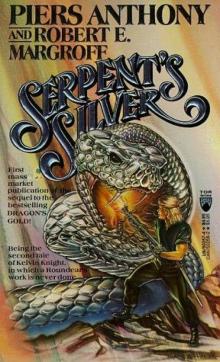 Serpents's Silver
Serpents's Silver Statesman by Piers Anthony
Statesman by Piers Anthony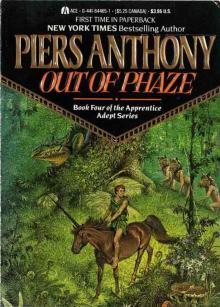 Out of Phaze aa-4
Out of Phaze aa-4 Amazon Slaughter & Curse of the Ninja
Amazon Slaughter & Curse of the Ninja